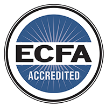Estate Planning

Start your plan today!
Steward God’s Provision Wisely
Everything we have is a gift from God. Kingdom-minded estate planning acknowledges Christians’ role as stewards of these gifts. We’re commanded to use them for His glory during our lifetime and beyond. WatersEdge can help you pass on God’s provision through biblically grounded estate planning that provides for your family and advances ministry.

The Pattersons Make an Estate Plan. Go Along for the Ride.
Why Do I Need an Estate Plan?
Start Here
We’ve been helping individuals and families impact God’s Kingdom through charitable estate planning for more than 50 years. Let our experienced staff guide you through the estate planning process as you seek to protect your family and support ministries that transform lives with the Gospel.
COMPLETE THE ESTATE PLANNING GUIDEBOOK
Our comprehensive guidebook will help you think through important estate planning decisions and gather relevant information. We recommend completing the guide online, but you can also download a fillable PDF or request a paper copy.
Have a complex or unique estate planning situation?
CONNECT WITH OUR ESTATE PLANNING PROFESSIONALS
Once you’ve submitted your guidebook, we’ll review it and reach out to help you answer questions or complete any missing information. You can choose to meet virtually, by phone or in person.
FINALIZE YOUR PLAN
We’ll send your guidebook to an attorney of your choice who will draft your estate planning documents. You will then work directly with your attorney to complete and sign your plan. We can recommend an attorney if you don’t have one.
Already Have A Will Or An Estate Plan?
Life changes quickly, which is why we recommend updating your estate plan every 10 years. Start by reviewing this check list of life events that often necessitate changes to a plan. If any apply to you, please complete a new Estate Planning Guidebook, even if you’ve completed one in the past.
Why Plan With Us?

Focus on Giving Back
Our estate planning experience is tailored for those with a desire to provide for their families as well as give back to God when they die, supporting Christian churches, ministries, organizations and institutions working to transform lives with the Gospel.

Legal Fee Reimbursement
We will reimburse a portion of your legal fees if your estate plan includes a gift to WatersEdge, at least 50 percent of which is for the benefit of a partnering ministry of your choice. You may choose either a gift of 10 percent of your estate or, a gift of $50,000 or greater. Learn more below or visit our FAQs. See a list of WatersEdge ministry partners at WatersEdge.com/MinistryPartners.

Experience
For more than 50 years, our certified estate planning professionals have helped thousands of individuals and families create and update plans that protect families and support ministry.

“Working with WatersEdge to establish my estate plan was easy and a great experience. Now I have peace of mind about my family’s financial future and the blessing of knowing my estate will further the Gospel after I’m gone.”
Blake Gideon
Senior Pastor, FBC Edmond | Edmond, Oklahoma

“We’d be fools not to create an estate plan, in a lot of ways. It benefits our child and future children, our families, and even benefits either one of us in case something happens. WatersEdge really communicated that it’s about stewardship and taking care of the things God has given us to use for His Kingdom.”
Will & Cady Bailey
Western Hills Church | Oklahoma City, Oklahoma

“The estate planning process was easy, and it helped me put things in order. I would definitely recommend WatersEdge to anyone considering going through that process. I’ve always wanted to help as many people as I could, and that’s been my whole goal. Now, with this plan, I know I’m making a difference.”
Wilma Bradshaw
Donor | Oklahoma City, Oklahoma
Go Deeper
Estate Planning Basics
An estate plan is a set of essential legal documents that settle critical end-of-life decisions. Your estate plan may include the following:
A. Last Will and Testament
A legal document that details your wishes for passing on your possessions at your death and names who will care for any minor children (under age 18) you leave behind. This is critical for single parents and for married couples in the event both spouses die.
Your last will and testament also includes your selection of a Personal Representative (also known as an Executor) for your estate. After your death, your Personal Representative will hire an attorney to file your will in probate court, so that assets in your name can be legally transferred to your heirs and other beneficiaries.
Without a will, the state will decide who inherits your belongings and who raises your children.
B. Health Care Power of Attorney
A legal document that grants authority to an individual you choose to act on your behalf regarding health care matters in the event you become incapacitated and cannot make decisions for yourself. This authority is typically given to a spouse or family member. The Health Care Power of Attorney allows this person to access your medical information, work with your doctors to prepare a plan of care, and perform other important tasks on your behalf.
C. Financial Power of Attorney
A legal document that grants authority to an individual you choose to act on your behalf regarding financial matters in the event you become incapacitated and cannot make decisions for yourself. This authority is typically given to a spouse or family member. The Financial Power of Attorney allows this person to pay your bills, access your bank accounts and perform other important tasks on your behalf.
D. Advance Directive for Health Care (“Living Will”)
A legal document that allows you to specify your wishes for end-of-life issues related to the use of life support, ventilators, feeding and hydration tubes, and resuscitation techniques like CPR. An Advance Directive for Health Care also allows you to provide instructions about organ donation.
Legal Fee Reimbursement
WatersEdge will reimburse up to $500 in legal fees associated with creating or updating your estate plan if your plan includes a gift to WatersEdge for the benefit of a partnering ministry of your choice. This reimbursement may cover most of the fees associated with simple estate plans. However, for more complex estate plans, it is common for legal fees to exceed the $500 reimbursement threshold. In this case, you are responsible for paying the difference.
Legal Fee Reimbursement Qualifications
- If you wish to specify a percentage of your estate as a gift to ministry, then the percentage must be at least 10 percent of your estate to qualify for legal fee reimbursement.
- If you wish to specify a specific dollar amount from your estate as a gift to ministry, then the amount must be $50,000 or greater to qualify for legal fee reimbursement.
- Ask the WatersEdge estate planning team about other giving options that can qualify your estate plan for legal fee reimbursement, including gifts made during your lifetime or gifts made through a retirement account or life insurance.
Ministry Partners
Not all WatersEdge ministry partners are listed on our website, so please ask our estate planning team if you’re unable to find a ministry you wish to support. We frequently add new ministry partners, including some like-minded ministries not affiliated with the Southern Baptist Convention. However, if you desire to support a ministry or organization whose purpose or ideology conflicts with Southern Baptists’ core beliefs as expressed in The Baptist Faith and Message, we may be unable to assist you.
Life Event Check List
We recommend updating your estate plan every 10 years. If any of the following life events apply to you, please complete a new estate plan.
- Significant increase or decrease in your assets
- Receive an inheritance
- Wedding, divorce or breakup
- Loss of loved one
- Birth or adoption of a child or grandchild
- Children have grown up
- Loss of your executor, guardians, trustees, etc.
- Desire to change your executor, guardians, trustees, etc.
- Desire to provide for a loved one with a mental health issue, disorder, or developmental disability
- It has been ten years or more since you have reviewed your estate plan
Complex or Unique Estate Plans
Some estate plans are more complex than others! If any of the following circumstances apply to you, please skip the Estate Planning Guidebook and contact our Estate Planning Team at 800-949-9500 or estateplan@WatersEdge.com.
- You own an operating business or farm
- You have retirement plan accounts in excess of $500,000
- You have estate tax exposure (total net worth in excess of $5 million)
- You have a complicated or non-traditional distribution plan
FAQ
To learn more about charitable estate planning with WatersEdge, please visit our Frequently Asked Questions.








